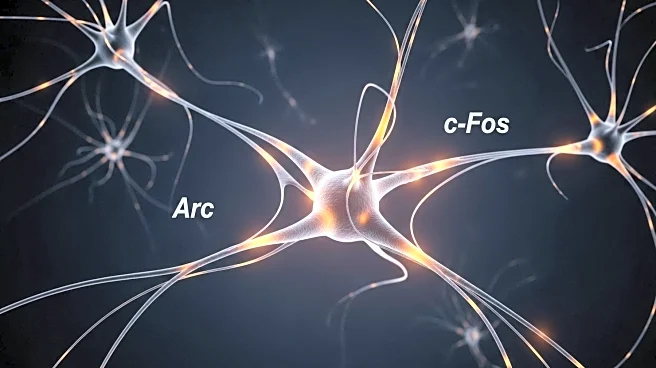What's Happening?
A study published in Nature examines the expression of immediate-early genes Arc and c-Fos in mice during contextual fear conditioning. Researchers found that these genes show divergent expression patterns across various brain regions, including the hippocampus and amygdala. The study involved administering shocks to mice and analyzing gene expression at different time points. Results indicate that Arc and c-Fos are differentially expressed depending on memory state and brain region, suggesting complex mechanisms of neuronal activation during fear memory encoding and retrieval.
Why It's Important?
Understanding the expression patterns of Arc and c-Fos provides insights into the molecular basis of fear conditioning and memory processing. This research could have implications for developing treatments for anxiety disorders and PTSD, as it highlights specific brain regions and gene interactions involved in fear responses. The findings contribute to the broader field of neuroscience by elucidating the role of immediate-early genes in memory and learning, potentially guiding future studies on brain function and mental health.












